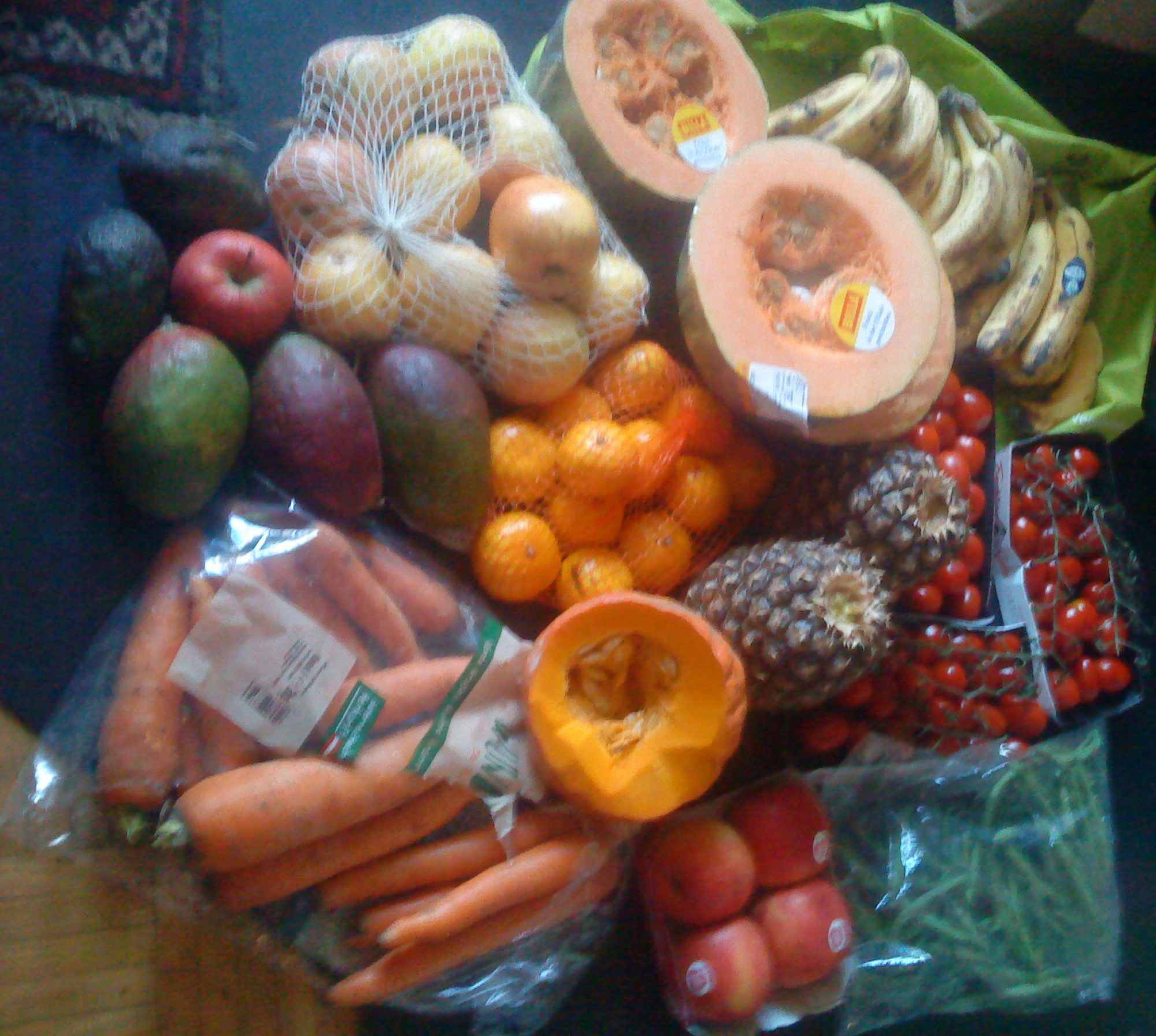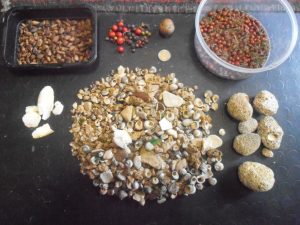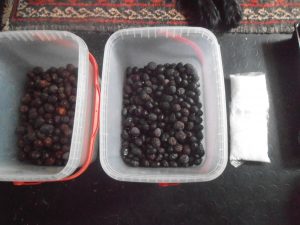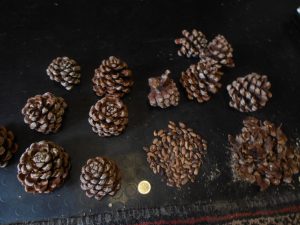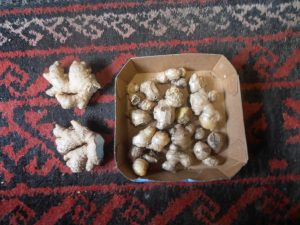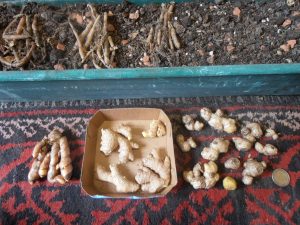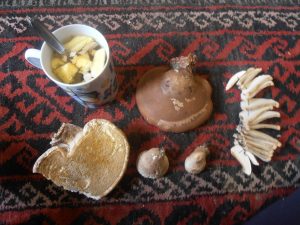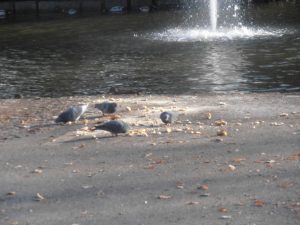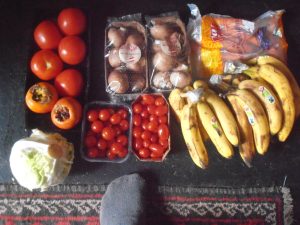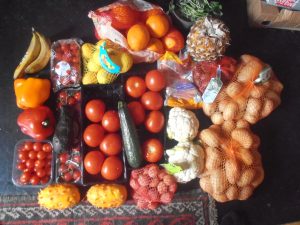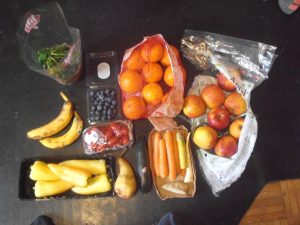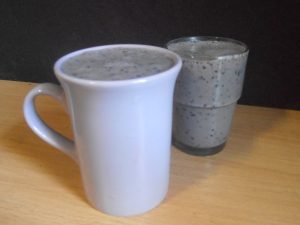While the gardens sleep, i harvested these summer vegetables from a supermarket bin:

Nothing exotic, just a few tropical fruits and meso-american vegetables in the dead of winter, hardly enough for a weekend for 3 ppl.
But never did i quarrel with the generosity and wisdom of the All Knowing Supermarket Bin That Provides For All The Knowing, so i was rewarded immediately (when my bananas where finished):
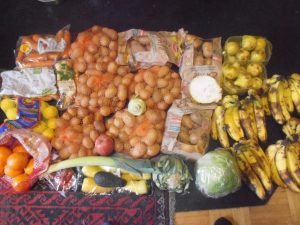
16kg of potatoes, appr 5kg of bananas, more than 2kg of carrots, and some winter greens thrown in (leek, celery, Karfiol, etc.) The pears (1kg top right) are juuust right.
We split all this between two households, and still have lots of tatties – but a plan… (tbc.)
that will require a reasonable amount of Hot Ketchup… How wise of Supermarket Bins to provide us will all these tomatoes:
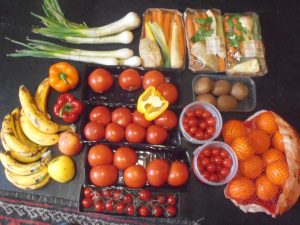
Chili harvest was pretty good last season, so we have plenty of Chili:
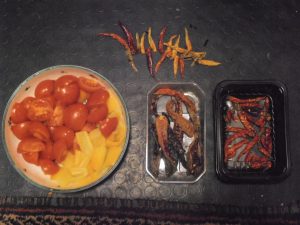
Recipe for Sambal Ayvar Hot Ketchup:
chili
tomato
paprika
oil
salt
sugar (tbc.)
